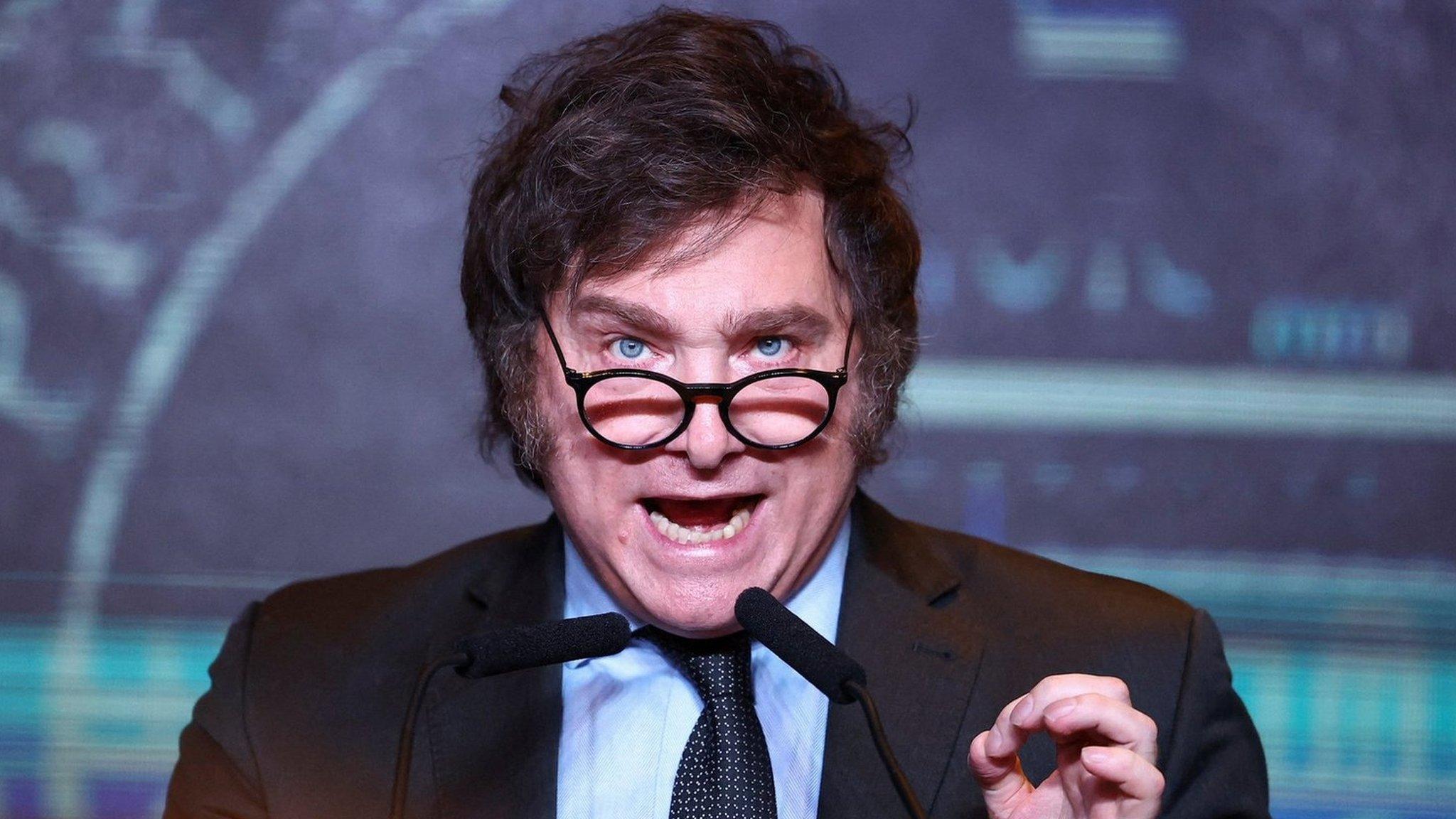First protests in Argentina against Milei's austerity plan
- Published
Watch: Argentines protest Milei’s austerity plans
Thousands of people have taken to the streets of Buenos Aires in the first big protest against the new Argentine government's economic shock policies.
President Javier Milei announced measures that include spending cuts and a drastic currency devaluation.
He also signed an economic reform decree that will end limits on exports.
The march was led by groups that represent the unemployed. Police were deployed in large numbers to stop the protesters from blocking roads.
President Milei, who took office less than two weeks ago, has promised tough action against any groups that try to thwart his plans with disruptive protests.
The government said on Monday that people who blocked streets could lose their right to receive state benefits.
"It is a peaceful mobilisation," said Eduardo Belliboni, who leads leftist protest group Polo Obrero, which first called the demonstration, in an interview with local radio.
"We do not want any type of confrontation. We do not want any type of clash."
In a speech broadcast on radio and TV, President Milei detailed some of 300 measures, marking what he called only a first step towards reconstruction.
They include privatising state companies and deregulating mining and other industries. The president said he would cancel the law regulating property rent.
He explained what he hoped the measures would achieve: "The goal is to start along the path to rebuilding our country, restore freedom and autonomy to individuals and begin dismantling the vast array of regulations that have hindered and stalled economic growth in our country."
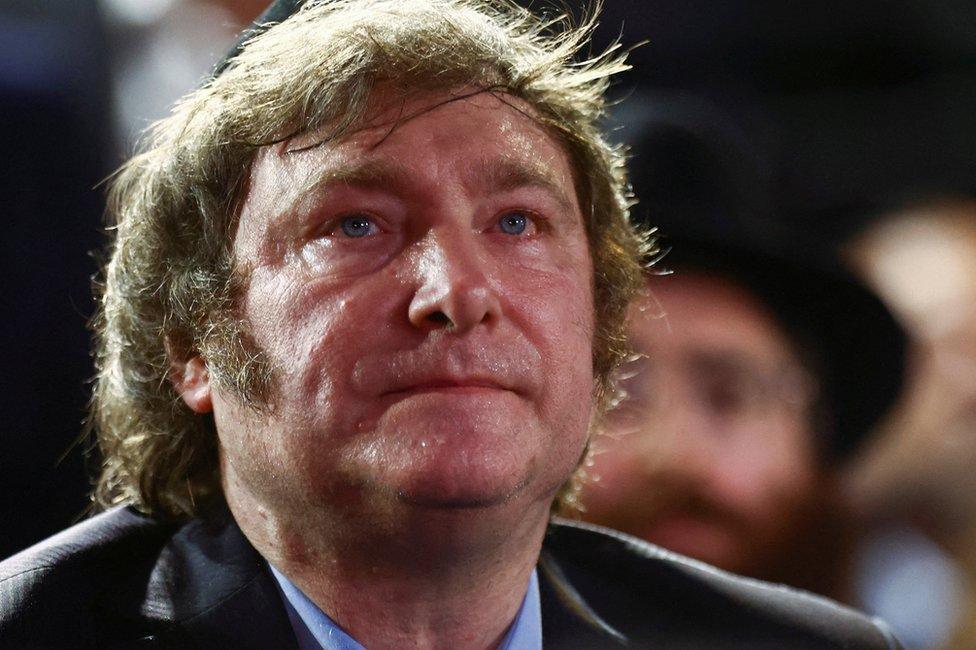
Javier Milei in Buenos Aires earlier this month
Last week, the government weakened the value of its currency by more than 50% against the US dollar.
The exchange rate was cut to 800 pesos to the US dollar, from roughly 391 pesos.
Since 2019, Argentina has kept its currency artificially strong by strictly controlling the movement of the currency.
That helped drive demand for the US dollar on the informal currency market, which saw the peso trading at a much lower rate than the official level.
Economy Minister Luis Caputo also announced deep cuts to public spending, including a reduction in fuel and transport subsidies and freezing spending on some major government contracts and advertising.
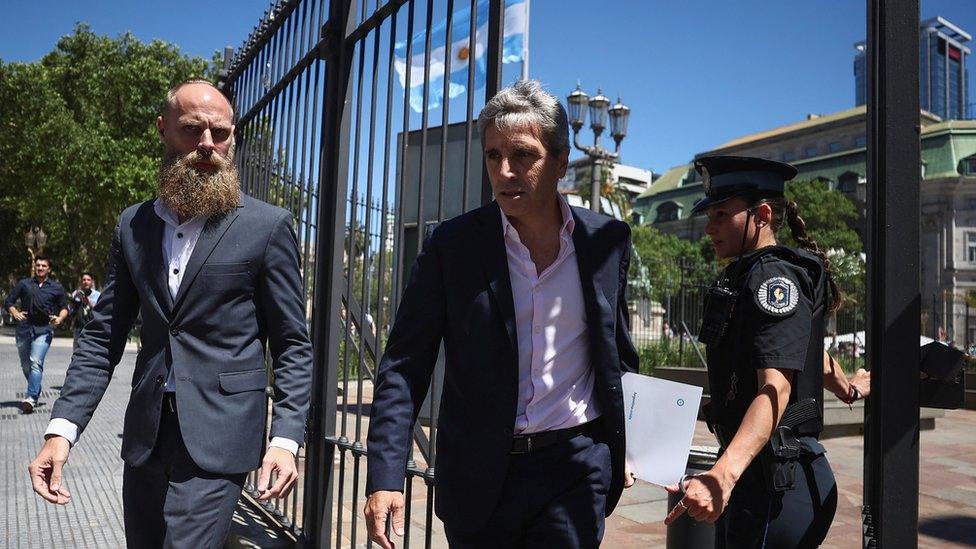
Economy Minister Luis Caputo (centre) pictured earlier this month after meeting the new president
Argentina is battling soaring inflation, with prices rising by around 150% over the last year. It is also struggling with low cash reserves and high government debt, while 40% of the population live below the poverty line.
The International Monetary Fund - to which Argentina owes $44bn (£35bn) - called the measures "bold" and said they would help create the environment for private sector growth.
Related topics
- Published13 December 2023
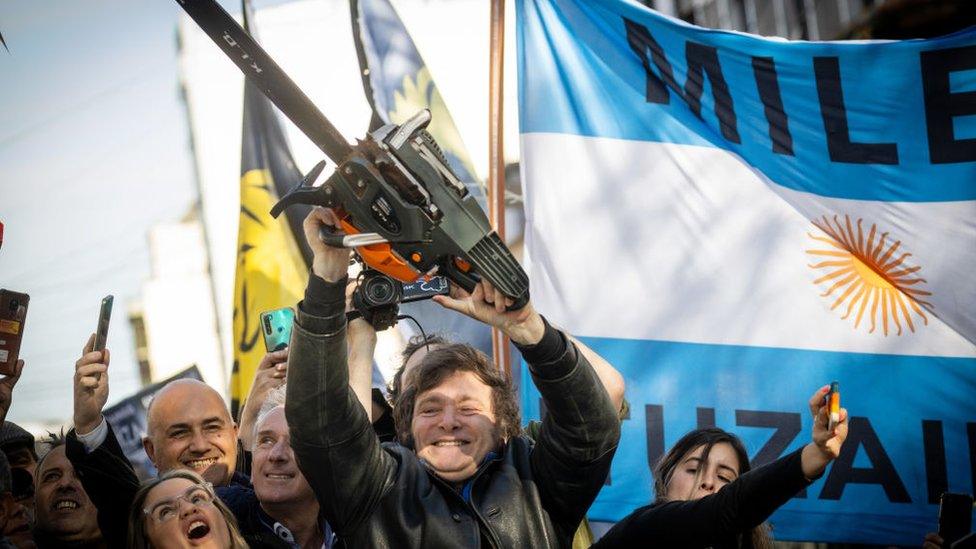
- Published11 December 2023
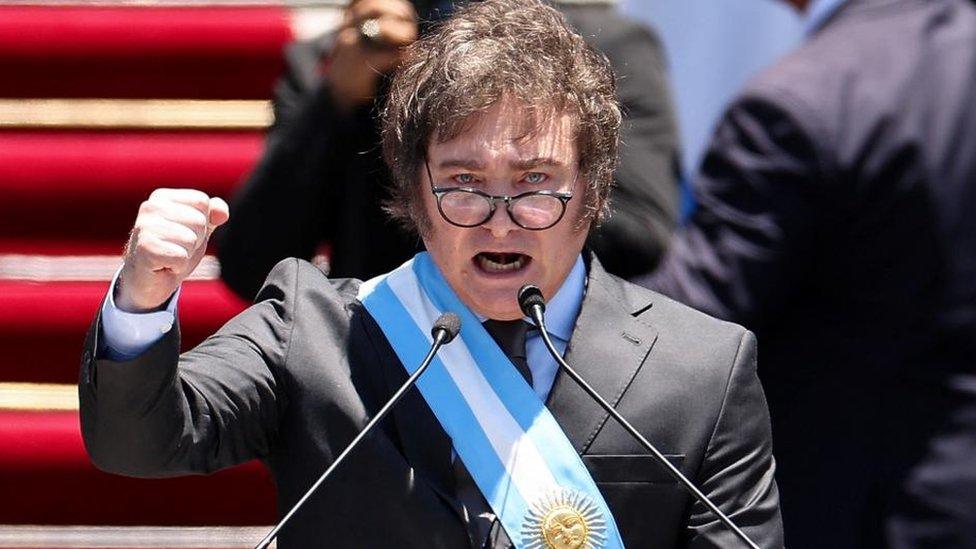
- Published20 November 2023
